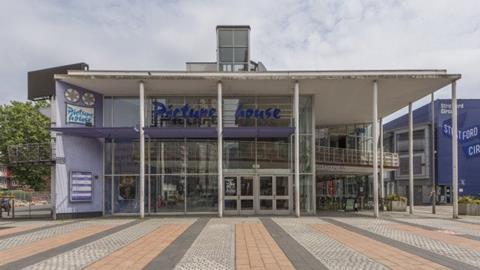
Exhibition analysts are warning the UK cinema sector is going through a brutal transition similar to that endured by high street businesses, several of which have collapsed in recent years as debt-laden cinema giant Cineworld looks to restructure its UK business and potentially offload or close its least profitable sites.
“It’s exactly the same process that BHS, then Debenhams, then Frasers went through, a massive restructuring process,” said John Sullivan of leisure consultancy The Big Picture, drawing a direct parallel between the UK’s beleaguered high street department store brands and its cinema businesses.
Consolidation is inevitable, according to Andrew McGregor, director at investment consultancy business McGregor Wyn.
“The imminent restructure of Cineworld is likely to crystallise what most cinema owners have been expecting, whoever their operator might be; that there are too many cinemas in the UK and rents are probably too high,” said McGregor. ”Frankly, for the leisure investment market, it will be a relief to get some clarity on the risk and therefore greater pricing certainty and perhaps more volume of trade.”
Cineworld owns 128 sites in the UK: 102 of which are Cineworld multiplexes and 26 are Picturehouse venues.
On Friday, it was reported Cineworld and its advisers at restructuring specialists AlixPartners are exploring a company voluntary arrangement (CVA).
Other sources have suggested Cineworld is more likely to use a 26A Companies Act 2006 restructuring plan or some other less aggressive mechanism as it tries to rationalise its business and renegotiate rents with landlords.
Cineworld itself has declined to confirm or deny the reports.. A Cineworld spokesperson told Screen today: “Like many businesses, we are continually reviewing our UK operations.”
Whatever happens, overall screen numbers in the UK are almost certain now to decrease. According to the UK Cinema Association (UKCA) statistics, there were 4,539 UK screens at 825 sites in 2023.
“We haven’t been able to show enough films to get people back in through the door over the last six months,” said Phil Clapp, chief executive of the UKCA, last week.
The big question is what will happen to the cinemas that Cineworld no longer wants. Will rival exhibitors Vue and Odeon, both of whom have debt issues of their own, look to acquire some of these sites, competition laws permitting? Will other operators, such as Ireland-based Omniplex Cinemas take on some of the sites? What are the implications for staff? If Cineworld manages to secure better rental terms with landlords, will Vue and Odeon try to do the same?
Some analysts are suggesting the main focus of the Cineworld management team is now firmly on the US where it runs the huge Regal Cinemas chain.
Alternative options
However, there has already been movement this year on some of the cinemas in Cineworld’s Picturehouse portfolio. Last week, Picturehouse announced the closure of three London sites, Fulham Road, Stratford East and Bromley Picturehouse.

Alternative options are emerging. At some Picturehouse sites, Landlords, often local councils, are taking their leases back from the major operators and bringing in their own managements to run the cinemas as an alternative to “surrendering to lowball offers” through a restructuring process.
In April, The Big Picture came on board as interim manager of the Ashford Picturehouse, now rebranded as The Ashford Cinema. The landlord in this case is Ashford Borough Council.
“Landlords are increasingly considering the managed option so they can control the next iteration of where their cinema goes,” Sullivan explained. “What we offer as a service is the ability for a landlord to manage their property through an interim period. They’re then not locked down to another lease. At the moment, many see jumping from one operator to another as potentially being like jumping from the frying pain into the fire.”
Other companies are also potentially open to taking on the management of cinemas whose landlords are no longer tied to the major operators.
“We want to help provide as many communities in as many places as possible with affordable, accessible cinema,” said Preston Benson, founder of the fast- growing 16-screen outfit Really Local Group. The company looks to provide live events, live music and food halls as well as cinemas at venues including the Catford Mews, the Reading Biscuit Factory and the Sidcup Storyteller.
“If a community was about to lose its cinema and someone came to us [saying], ‘Can you help?’, if we can help the market do that, we’ll do that. [But] If that [opportunity][ presented itself and we thought that was a good opportunity, we would want to do it for the long term,” Benson said.















![[L-R]: Amanda Villavieja, Laia Casanovas, Yasmina Praderas](https://d1nslcd7m2225b.cloudfront.net/Pictures/274x183/6/4/1/1471641_pxl_20251224_103354743_618426_crop.jpg)









No comments yet